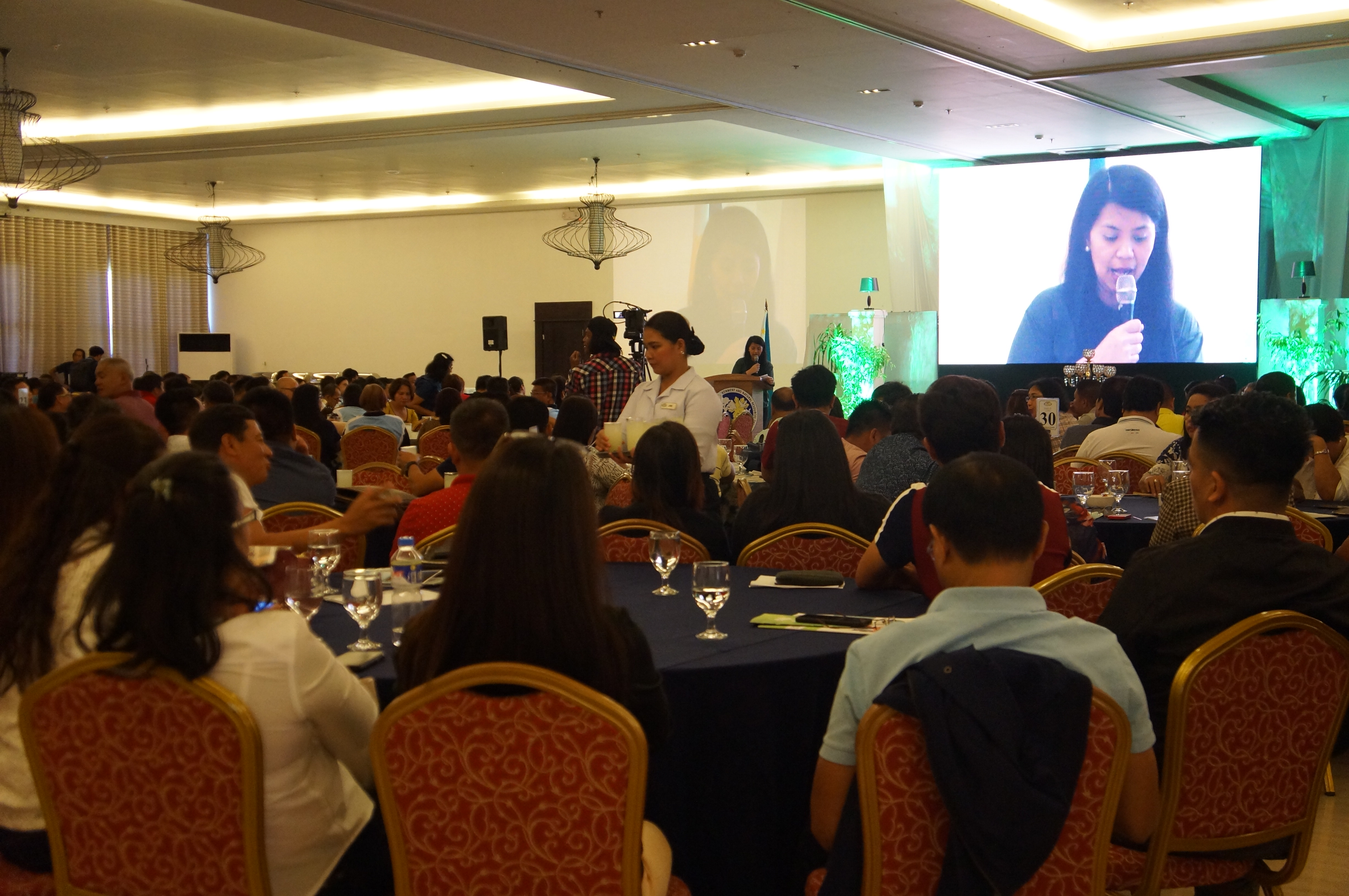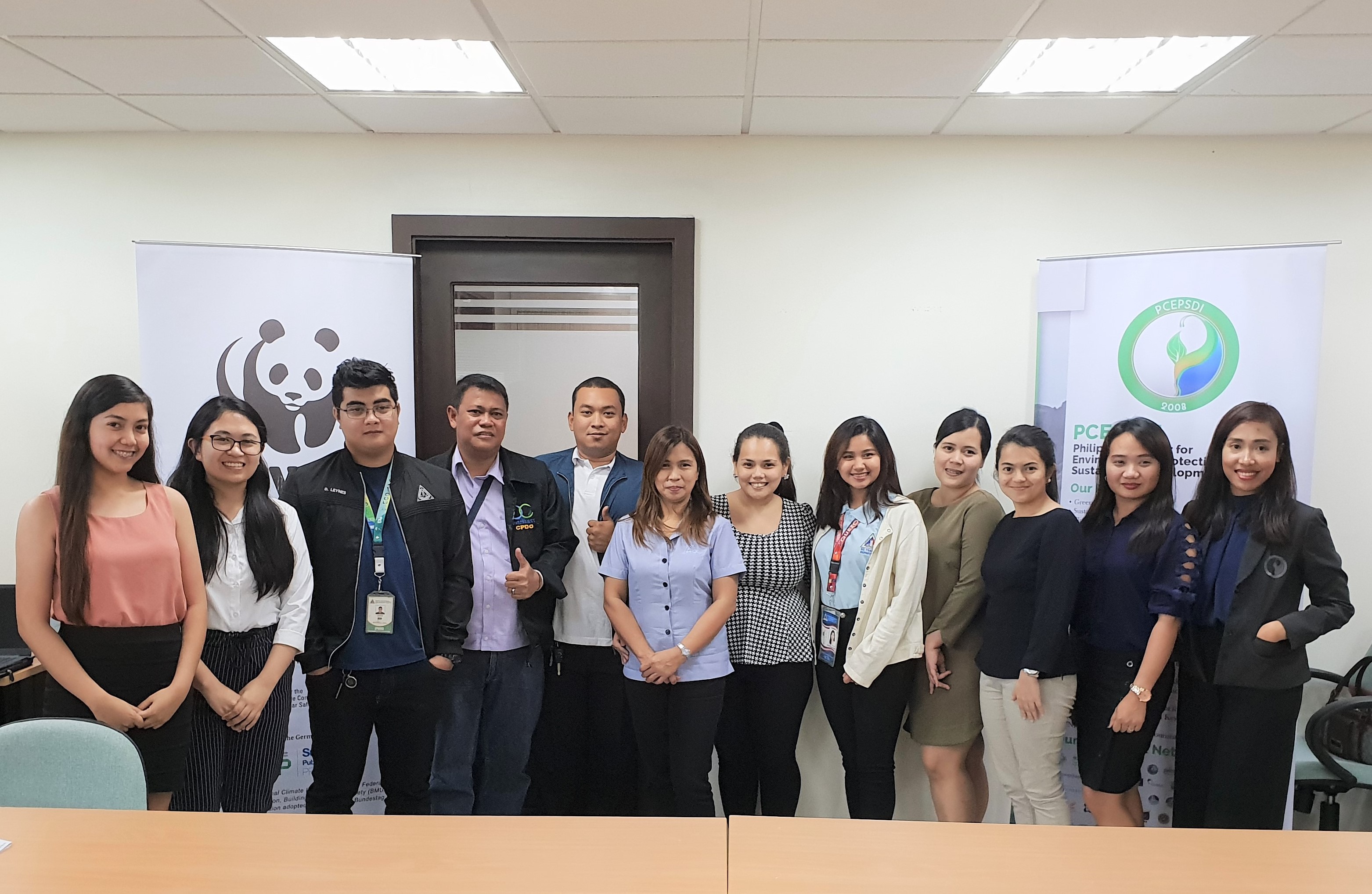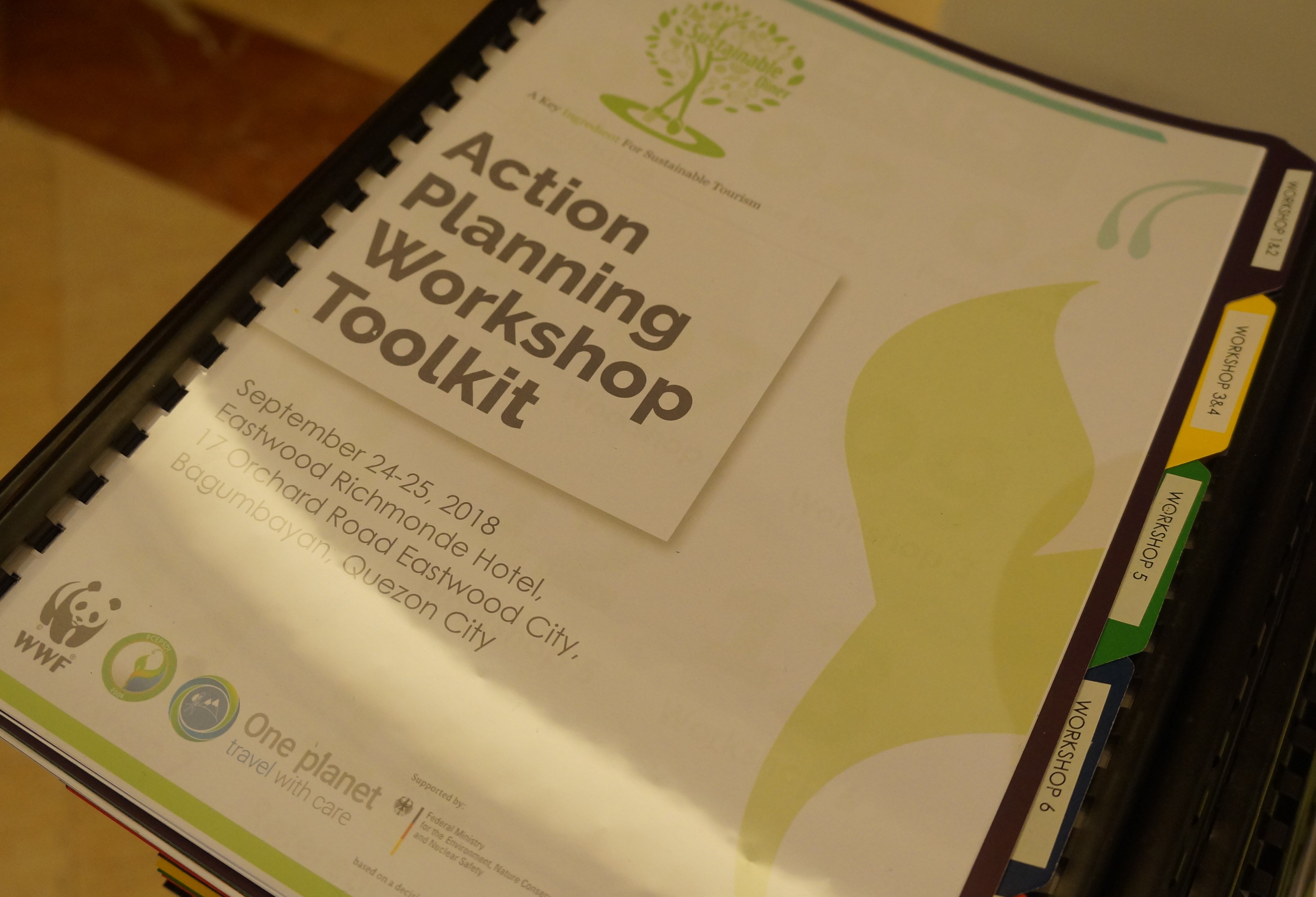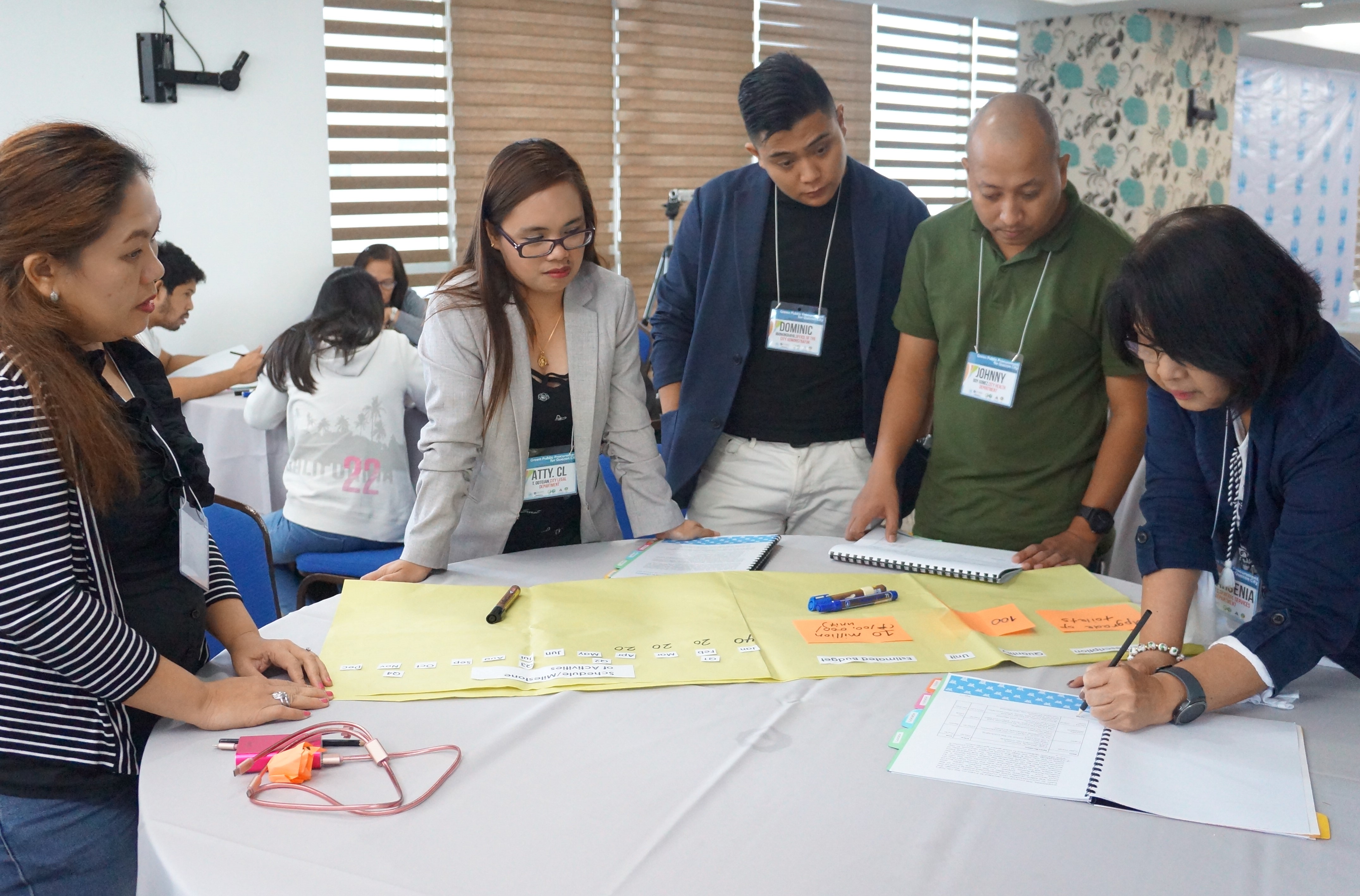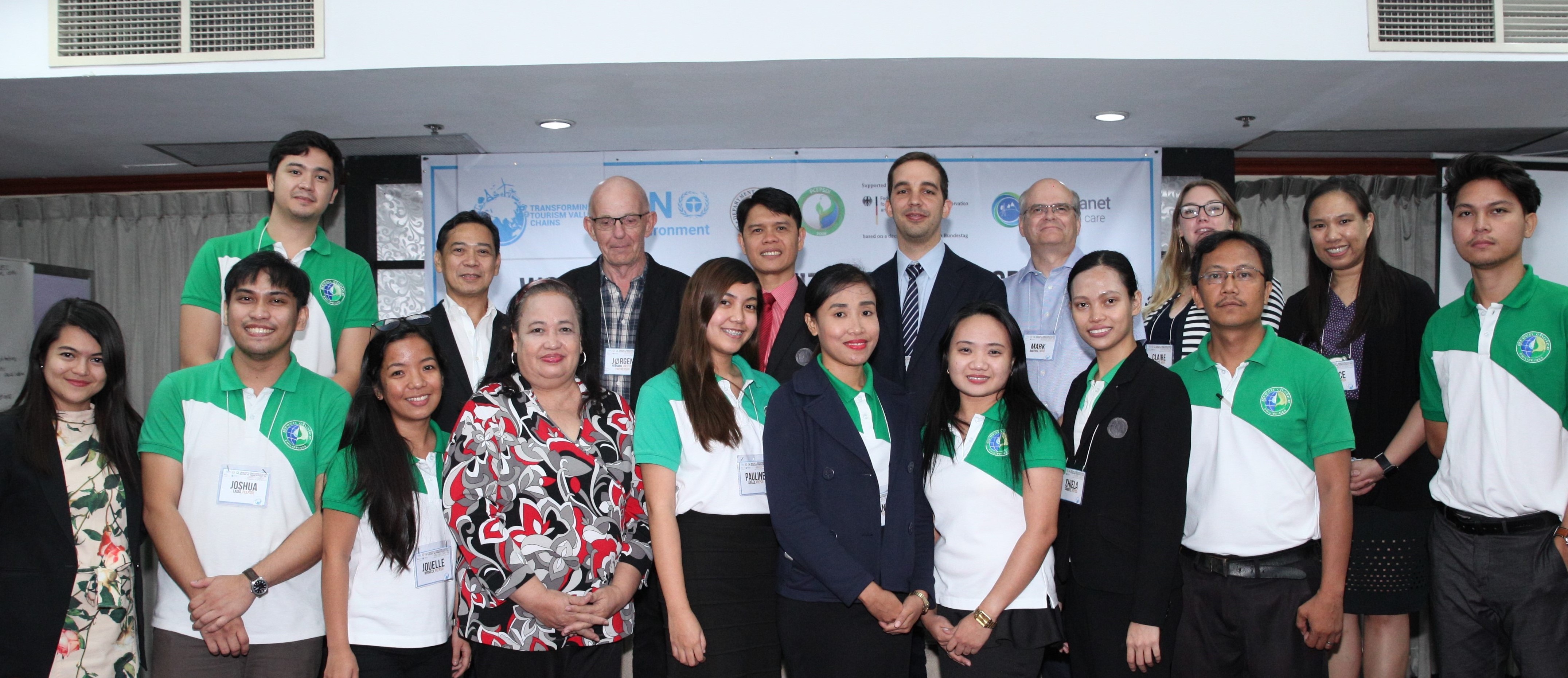Sustainable Tourism Initiatives in the 10th PLLENRO National Convention
Guest Speakers with the participants of the 10th Philippine League of Local Environment and Natural Resources Officer (PLLENRO) National Convention. Photo © Jouelle Nerveza / PCEPSDI The Philippine Center for Environmental Protection and Sustainable Development, Inc. (PCEPSDI), as a pioneer organization in advocating Sustainable Consumption and Production (SCP) in the country, contributed to the 10th National Convention of the Philippine League of Local Environment and Natural Resources Officer (PLLENRO), held at the CityState Asturias Hotel in Puerto Princesa City, Palawan. The convention was attended by Environment and Natural Resources Officers (ENROs) from different local government units in the Philippines. PCEPSDI had the opportunity to organize a one-day programme on March 1, 2019 for the convention highlighting sustainability in the tourism industry in partnership with PLLENRO. It included current initiatives in the country in the promotion of Sustainable Consumption and Production (SCP), understanding the environmental footprint of the accommodation sector, as well as actual application of innovative solutions as a core business practice. Ms. Jane Dela Rosa of the National Economic Development Authority (NEDA) also graced the event and presented NEDA’s initiatives on strengthening SCP in the Philippines. PCEPSDI Executive Director June Alvarez discussing Green Choice Philippines as an ISO 14024 Application. Photo © Jouelle Nerveza / PCEPSDI PCEPSDI Executive June Alvarez discussed Green Choice Philippines as an ISO 14024 application in the forefront of promoting SCP in the Philippines. Green Choice Philippines is an ecolabelling scheme that follows the guidelines and procedure of ISO 14024 and it aims to communicate that consumers can put trust on labels. The programme also include the existing projects of the organization in the promotion of sustainable tourism. PCEPSDI Project Officer Kiko Velhagen discussed the pilot project on Transforming Tourism Value Chains. A project in partnership with the United Nations Environment Programme (UNEP) and the Department of Tourism (DOT), the Transforming Tourism project aims to reduce greenhouse gas emissions and promote resource efficiency in the Hotel and Meetings, Incentives, Conventions & Exhibitions (MICE) sector. PCEPSDI Project Officer Diana Sadili also shared the results of the Life Cycle Study conducted for Food Services. The study is part of PCEPSDI’s technical assistance to the Sustainable Diner Project: A Key Ingredient for Sustainable Tourism, which was also presented at the event by WWF Philippines’ Project Manager Melody Melo-Rijk. Mr. Neil Rumbaoa of SM Hotels and Conventions Corporation (SMHCC) and Mr. Robert Llamas of Quanta Paper Corporation also shared their respective companies’ initiatives on Sustainability. SMHCC being a partner on Transforming Tourism Value Chains Project and Quanta Paper Corporation as an awarded Green Choice Product. Awarding of certificates to the speakers with PLLENRO Officials. Photo © Jouelle Nerveza / PCEPSDI Through this event, PCEPSDI and PLLENRO has reaffirmed the organizations’ partnership in the promotion of Sustainable Consumption and Production. To know more about the initiative on sustainable development, please visit our website at www.pcepsdi.org.ph.
